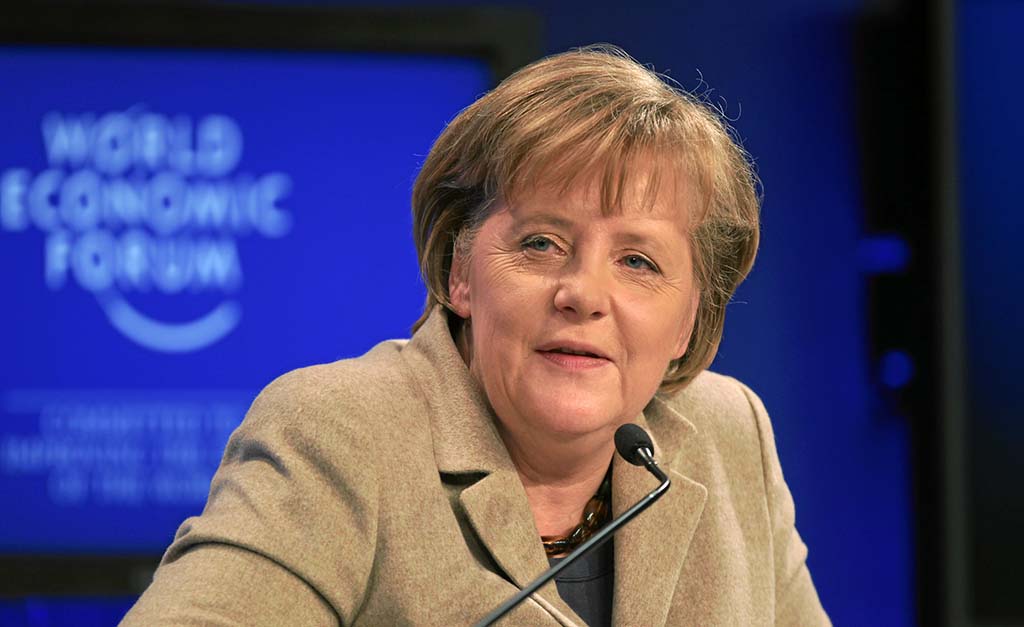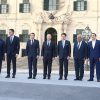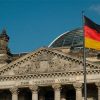
As Chancellor of Germany Angela Merkel has dominated European politics for four terms, 15 years, many of them complex and fraught. Sometimes bravely, at other times less so; more as a tactician, a crisis manager, than as a strategist, lacking a true vision, albeit a tireless worker, studious, intimately acquainted with all the dossiers that passed across her desk and a firm believer in the virtues of negotiation and her own values. Her departure, and the possible accession of the Social Democrat Olaf Scholz to the EU’s most powerful premiership, together with other movements underway, open up a new opportunity for Europe.
In the throes of what was first an economic and financial and later a debt crisis, beginning in 2008 with the collapse of Lehman Brothers in the US, Merkel ‘saved the euro’. But she demanded an excessive degree of suffering and sacrifice from Greece –as she herself would later admit– and from Spain and Italy, which have not entirely recovered, the fallout from the pandemic having collided with recovery from the crisis. The G20 favoured a Keynesian fiscal policy from the outset, but later, responding solely to the national interests of an ageing Germany and thus worried about its pension commitments, she suddenly slammed the brakes on the expansionist policy at the start of 2010, catching other countries, like Spain, unawares. In the debt crisis, where she was identified with ‘austerity’, Merkel always believed that the situation would resolve itself, or at least could be managed, at the next European Council meeting, but events turned out otherwise.
The second Merkel was much more decisive, sometimes brave in the face of her party, the Christian Democratic Union, and her fellow citizens (for example on the issue of refugees from the Syrian civil war), although perhaps not a visionary. She secured a milestone by calling a halt to nuclear power by 2022 and also with the lockdowns, against the opposition of the Länder. Above all, amid the economic crisis stemming from the pandemic, with her firm support for the €750-billion recovery, transformation and resilience package –an initiative not produced in Berlin– although for the time being it should not be viewed as a precedent or a step towards a fiscal union in the EU or even the Eurozone. She has supported the idea of European sovereignty and technological autonomy, with a host of initiatives emanating from Berlin and the European Commission, also led by a German, although the political as opposed to the technical leadership of Ursula von der Leyen, let alone the President of the Council, the Belgian Charles Michel, leaves much to be desired. In terms of defence policy, she has presided over a more active and participative approach by Germany –something admittedly begun by her predecessor, Gerhard Schröder– and she has supported the idea of European defence and more spending, but the fact is that the German armed forces continue suffering from a lack of resources. Germany matters, but it is not a power in the full sense of the word.
What may change? If, as the polls suggest, Scholz, the outgoing Finance Minister (which is in itself meaningful) comes to power, he will have to do so at the head of a still unknown coalition –we will need to wait for the election on 26 September and then the subsequent negotiations– but is likely to include the Greens in any event. But almost all of them –us– are now greens, in Germany and elsewhere. The fight against climate change could receive a new impetus.
A hypothetical Chancellor Scholz, while continuing to uphold national interests, albeit from a different perspective, would probably be more active on the matter of ‘European sovereignty’, technology and security and defence, something that may be accentuated with the crisis of trust in Washington and the identity of NATO following the Afghanistan debacle and the crisis triggered with France, and to a degree with Germany, stemming from the sale and technology transfer of nuclear submarines to Australia to counteract China. Les anglo-saxons, as de Gaulle would have said.
He represents progress towards a Eurozone Banking Union, although not a Fiscal Union –the Christian Democrat opposition, more supportive of a return to austerity, accuses Scholz of defending a ‘Debt Union’ and a ‘soft euro’– although everyone supports the creation of a capital markets union in the EU. There will be a chance to review the criteria (deficit, debt and inflation) of the Stability Pact of the Economic and Monetary Union with greater flexibility, especially if there are more major governmental changes in the EU’s other central countries.
Italy thinks along these lines, like Spain. Social democracy is staging a comeback in the northern countries, which does not mean that they are renouncing frugality. Even Biden in the US is a convinced Keynesian. But the fact that the centre-left dominates in the central countries of the EU, including Spain, provides no guarantee, as became evident previously. The major unknown element is France, with its presidential and parliamentary elections (in that order) next April, which will be in part characterised by the vision of Europe, in a contest that is no longer between just two (Macron and Le Pen). France will hold the presidency of the Council of the EU in the next six-month period, and although the role has lost weight with the Treaty of Lisbon, Macron will want to exploit the situation –and the conclusion of the deliberative and participative democracy process that the Conference on the Future of Europe experiment will have entailed– to mark his European policy, taking advantage of a new and better-disposed Chancellor in Berlin. Although rather than German (or Franco-German) leadership in the EU, what matters is building a powerful collective leadership.
The policy towards Russia also remains to be seen. Merkel both pushed for sanctions in 2014 and the Nord Stream 2 gas pipeline, opposed by some neighbours and Washington alike. Regarding China, Merkel separated the apparent defence of human rights –purely declarative– from the economic and trade policy that she pursued. There may be changes, but this policy is essentially guided by German industrial interests.
In short, with the departure of Merkel, the most popular leader in Europe (more popular than her own country), the EU is losing a touchstone, but is gaining possibilities. A window of opportunity and new dynamism is opening up. For now this is all. But it is not to be sneezed at.


